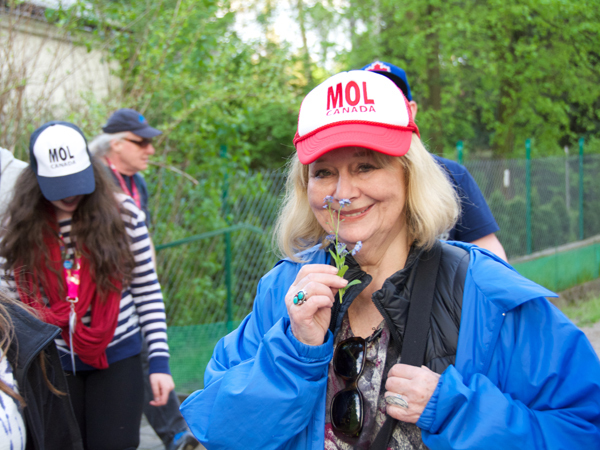Lillian Boraks-Nemetz
This portion of the exhibit is dedicated to the story of poet and author Lillian Boraks-Nemetz and her journey of self-examination and healing following her experiences as a child survivor of the Holocaust. Her story is split into segments that explore her pre-war experiences; life in the Warsaw Ghetto and her escape; life in hiding; liberation of Poland and emigration to Canada; the impact of Holocaust trauma in adulthood; and "breaking the silence".
Lillian currently resides in Vancouver, where she co-founded the Holocaust Child Survivor Group of Vancouver, BC. In addition to publishing a memoir, a series of youth novels and several books of poetry, Lillian is an ongoing speaker with the Vancouver Holocaust Education Centre's (VHEC) Outreach Program offering presentations on racism and the Holocaust to students in BC.
To navigate to a specific page within the Lillian Boraks-Nemetz section of the website, use the navigation at the top left of the screen. To move through it sequentially, click the "Next section" options at the bottom right side of each page. Using the "prev" and "next" buttons at the very bottom will bring you to a different exhibit. The pages within this section of the exhibit feature still images that provide additional information when clicked. Video clips are also included in this exhibit and have captions that are hardcoded and provided by the creators of this exhibit to increase accessibility. For additional information on a video clip, click the video's title instead of the play button. This exhibit was designed for use on tablets and desktop computers; it may not function as effectively on mobile devices.
CONTENT & CONTACT
Given the nature of this exhibit, there will be discussion of potentially difficult subjects including genocide, antisemitism, illness, death, sexual assault, child abuse, and trauma. This exhibit attempts to approach these topics in a way that is sensitive and compassionate. To help facilitate this, the authors are receptive to feedback on handling uncomfortable subject matter. Contact information is listed on the Creators page for any questions or comments you may have.
Next section: Childhood
